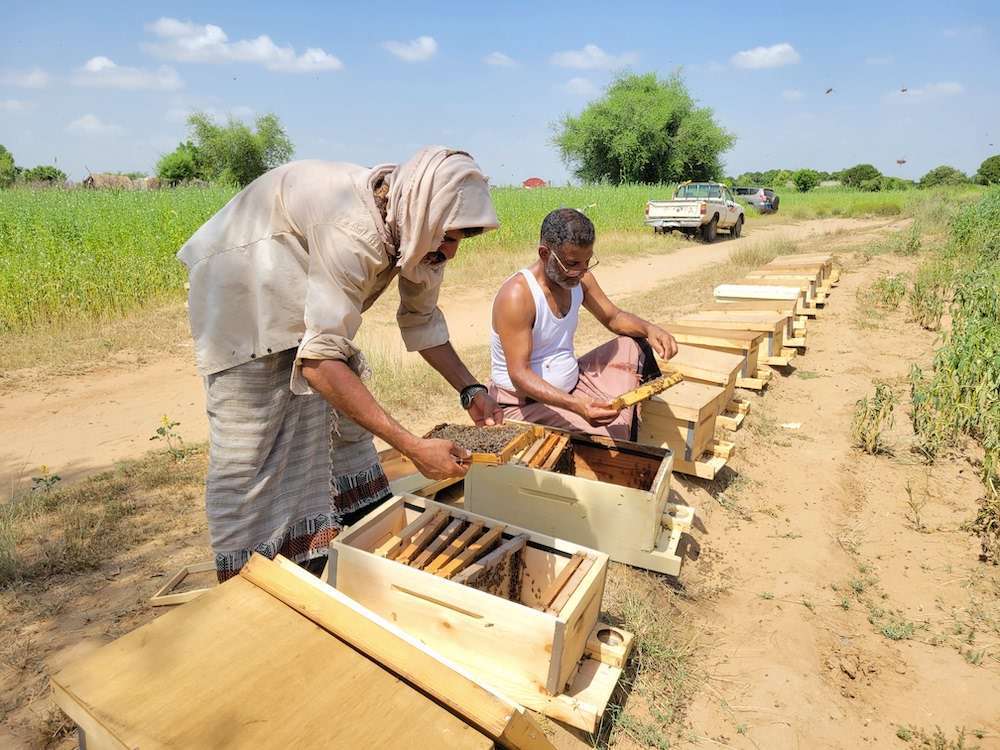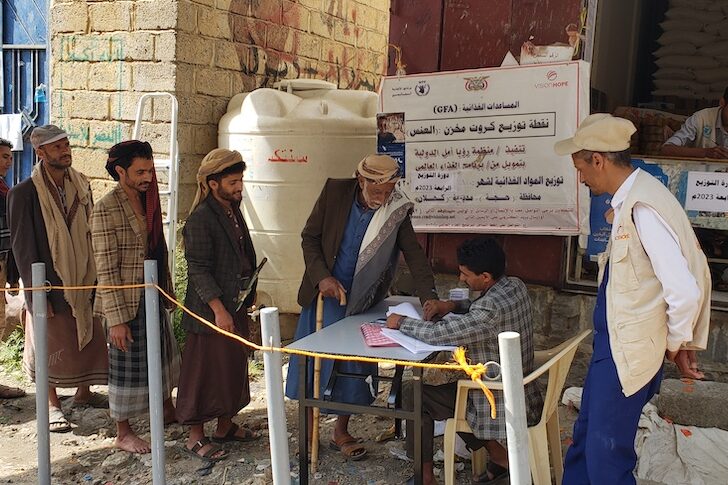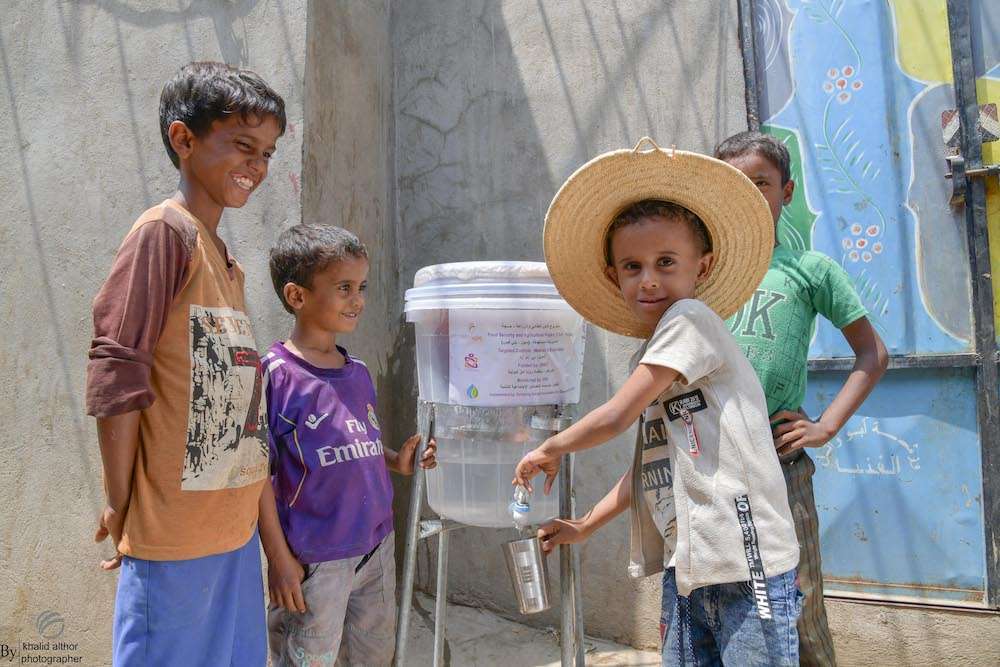Food Security and Agriculture
To improve food security for poor, displaced and affected families who suffer from food insecurity due to the loss of their fixed sources of income, VHI implemented, in partnership with WFP, a project to distribute monthly food aid. The project covered 12 districts in Hajjah governorate and 9 districts in Al Hodeida governorate. Each targeted family received a food basket or cash vouchers consisting of flour, vegetables, sugar, salt and cooking oil. These were handed out to the most vulnerable Yemenis – particulariy those with children or female dependants – who are suffering from an acute crisis of food insecurity. The beneficiary families were selected according to the standards approved by the WFP.
General food distribution: The projects team distributes food to families on a monthly basis using 138 food distribution points in 21 districts within the governorate Hajjah and Al Hudaydah.
One-time food assistance distribution: Through this mechanism, VHI responds to displaced families and families stricken by disasters and floods by distributing a one-time food basket before the affected are placed within the General food distribution care.
In 2023, 98,732 families benefited from the food assistance.

Success Story
Fatima (alias name), 55, is a widow living with her grandson and mother, navigating displacement and adaptation struggles. Her son, the family’s provider, tragically died in a fishing accident.
Originally displaced from Hayes due to bombings, they settled in Al-Salif, Hodeidah Governorate, facing ongoing hardships compounded by food insecurity.
Fortunately, the General Food Assistance project by Vision Hope and the World Food Programme intervened. Fatima’s family received a monthly food basket, easing their meal concerns and allowing Fatima to better manage their needs.
Expressing gratitude, Fatima said, “Thanks to the World Food Programme through Vision Hope, our situation improved. I’m truly thankful to all involved.”
List of results from 2023
- 691,124 individuals benefiting from food assistance (49% women)
- 95,994 households benefiting from general food distribution via 138 distribution points
- 30,962.33 metric tons of food commodities distributed to the beneficiary families
- 2,738 internally displaced households received one-time food rations
- 883.13 metric tons of food commodities distributed to the beneficiary internally displaced families
In Al Khabt districts, Mahweet governorate, VHI aims to improve targeted beneficiaries’ food security, livelihood, community infrastructures, agricultural practices, and income that will result in strengthened resilience. The activities include provision of cash short income and building and repairing community assets and infrastructure by the Cash for Work Program, supporting establishment of sustainable micro-business
by provision of vocational training and start-up grants, and establishing of farmer field schools. VHI will target a total 410 heads of households including 115 women and 295 men who will be benefiting from the provided activities.
Conditional cash transfers – Community asset initiatives
VHI plans to distribute cash to 210 families in order to implement community assets. This includes the construction of four harvest tanks, five wells, 500 meters of road paving, cemeteries, and the protection of 1000 meters of agricultural land.
Restoring livelihood assets – Agricultural initiatives
VHI will establish farmer field schools for 40 men and 10 women. These schools will serve as platforms for smallholder farmers to learn, share experiences, and adopt improved agricultural techniques through a participatory education approach.
Income-generating activities – Skill development and financing
VHI aims to provide vocational training and micro-business support to 150 individuals, both men and women. The training will cover various topics such as sewing (45 women), mobile maintenance (5 women and 10 men), motorcycle repair (15 men), livestock training (25 women and 20 men), and beekeeping (30 women).






